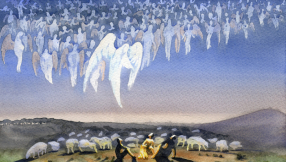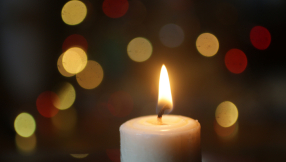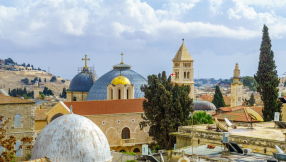At Easter in Cairo, Egypt, Christian Today spoke to Rev Dr Andrea Zaki, the head of the Protestant Community of Egypt. Over coffee at the Coptic Evangelical Organisation for Social Services, Zaki proudly spoke of how he had recently met with a delegation of US evangelical leaders close to Donald Trump, including Johnnie Moore. The men had much in common. But a fascinating divide emerged when he was asked whether he expressed his opposition to Israeli action against the Palestinians: '120 per cent,' he replied.
The apparently obscure but significant division is part of a wider gulf today between American Christian leaders and those elsewhere when it comes to the Middle East.
For much of the world and most of the time, Gaza is the forgotten land. And as my colleague Mark Woods has written, it, along with the plight of Palestinians, is a 'blind spot' for a large host of influential US evangelicals who are committed to supporting Israel, apparently at any cost.
Yet each year without fanfare, the Catholic bishops of England and Wales lead a delegation to Gaza as well as elsewhere in the Middle East, underlining that Church's special commitment to the region including the Strip. Anglican bishops, including the bishop of Southwark Christopher Chessun, attend.
Today inside Parliament, Catholic bishop Declan Lang, who chairs the Holy Land Coordination which runs the trip, will be hosting a seminar on the situation in the region alongside bishop Chessun.
In Jerusalem, the Latin Patriarch has lamented the 'vicious circle' and condemned the 'disproportionate violence', saying: 'In these days we are witnessing another outburst of hatred and violence, which is once again bleeding all over the Holy Land. The lives of so many young people have once again been shut down and hundreds of families are mourning their loved ones, dead or wounded. As in a kind of vicious circle, we must condemn all forms of violence, any cynical use of human lives and disproportionate violence. Once again we are forced by circumstances to plead and cry out for justice and peace!'
And you can expect Pope Francis soon to speak out on the issue in Rome.
At Lambeth Palace, the archbishop of Canterbury Justin Welby, who visited the enclave last year, today wrote on Twitter: 'Grieving the tragic loss of life in #Gaza and praying for the peacemakers. The Anglican Church is committed to serve the people of Gaza through the extraordinary work of the hospitals I was able to visit there last year.'
Welby joins the Church of Scotland, Christian Aid and Embrace the Middle East in speaking out.
Adding their voice this afternoon is the Catholic aid agency CAFOD, whose Middle East country representative, Mary Lucas, returned recently from Gaza. She said: 'We are deeply distressed by the loss of life in Gaza. People I met there spoke of hopelessness and despair, especially among the young, and they fear what will come next. The protests are intended to claim back dignity and tell the world the people of Gaza will not be forgotten...Eleven years of closure of Gaza by Israel has resulted in siege-like conditions, with food, medicines, and fuel running critically low. The numbers of death and injuries during the protests have brought hospitals and health services to collapsing point. This recent escalation in violence, threatens hopes for a peaceful solution for both Israelis and Palestinians.'
And it should not be forgotten that there are voices in pluralist Israel, too, who condemn such actions. The respected Israeli human rights agency B'Tselem has urged soldiers to disobey orders to shoot at unarmed civilians.
And the admirable group of Israeli veterans Breaking the Silence issues powerful testimonies of the corrosive effect for them as well as Palestinians on such atrocities.
True, there is silence from Trump-supporting evangelical leaders, and excited support for Trump. This has been led by the controversial pastor John Hagee, the founder and chairman of Christians United for Israel who took part in the opening ceremony at the new Jerusalem embassy. He said: 'I was deeply honored to participate in this historic moment. Jerusalem is the eternal capital of Israel, and I am very proud of my country and my president for recognizing that fact. This moment would not have been possible were it not for President Trump's courage...'
As the protests reached a climax, the equally controversial Baptist pastor Robert Jeffress said in his prayer at the embassy yesterday: 'Without President Trump's determination, resolve, courage ... we would not be here today. And I believe, Father, I speak for every one of us when we say, we thank You every day that You have given us a President who boldly stands on the right side of history, but more importantly, stands on the right side of You, O God, when it comes to Israel.'
Meanwhile, the 'non-partisan' evangelical group My Faith Votes applauded the fact that Trump's America stands 'shoulder to shoulder' with Israel.
But it should be remembered that elsewhere, from Lambeth Palace to Cairo, Christians around the world are united in grief and growing despair.













